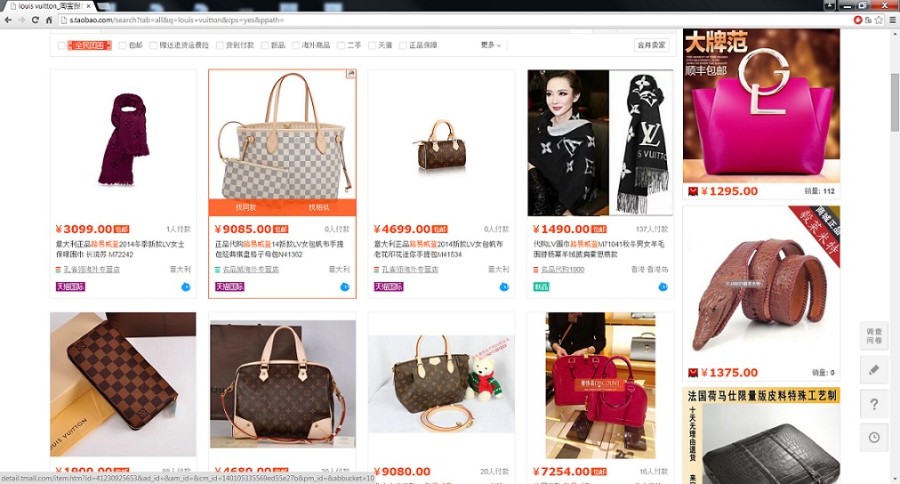Alibaba’s Counterfeit Problem
If you haven’t heard of Kering, it is the owner of luxury brands including Gucci and Yves St. Laurent. If you haven’t heard of Alibaba, it is China’s largest e-commerce business. These two have been going head to head recently over counterfeit products with no real solution in sight.
Alibaba, with a market value of $250 billion, is worth more than American online retail giants Ebay and Amazon. The company has long struggled with allegations that its online shopping platform Taobao is full of counterfeit merchandise. But with such a massive online platform, it is difficult to monitor every product being sold.
Kering, which works hard to prevent the sale of counterfeit versions of their products, filed a lawsuit earlier this week stating several vendors from Alibaba’s site were selling counterfeit products and shipping them to New York.
The suit alleges that Alibaba and its associated companies “knowingly encourage, assist, and profit from the sale of counterfeits on their online platforms.”
The suit focuses on algorithms that could be seen as encouraging the purchase of counterfeit goods. For example, when a customer types in the word “replica” in the search bar on the Alibaba.com website, an algorithm displays the term “wristwatches” and directs the customer to merchants selling counterfeits, according to the suit. This is a valid issue worth addressing and Alibaba can work harder to ward off counterfeiters, but the real problem isn’t the medium for selling these products, it is the products themselves and the work should not stop with shutting down a website- that is where it should begin.
Alibaba has reacted strongly to this suit, “Unfortunately, Kering Group has chosen the path of wasteful litigation instead of the path of constructive cooperation. We believe this complaint has no basis and we will fight it vigorously,” an Alibaba spokesman said.
At Asymmetrica we also find the process of litigation against Alibaba for the sale of counterfeit goods unproductive. They have made large strides in working to fight the sale of counterfeits online, such as a team of 2,000 scanning for fake products and a recent launch of a new technology to ensure authenticity.
But we see this strategy as similar to a “whack-a-mole” game. Shutting down one website for fake products results in another popping up not long after.
At Asymmetrica, we believe in the value of intelligence and tracing the product to its source. Who is operating the website? Where are they located? Where is the product coming from? How is it being made and with what raw materials? How are they getting the exclusive luxury designs occasionally before a legitimate product is released?
These are all the questions companies should be asking and they cannot look to Alibaba to solve their problems for them.
Our advice is to use the resources of Alibaba and find out as much information as you can about the vendors selling fake versions of your product. Save the money spent on lawyers and spend it on intelligence-gathering. Get law-enforcement involved because as we know, those producing counterfeit goods are often involved with other criminal activities.
![]()



